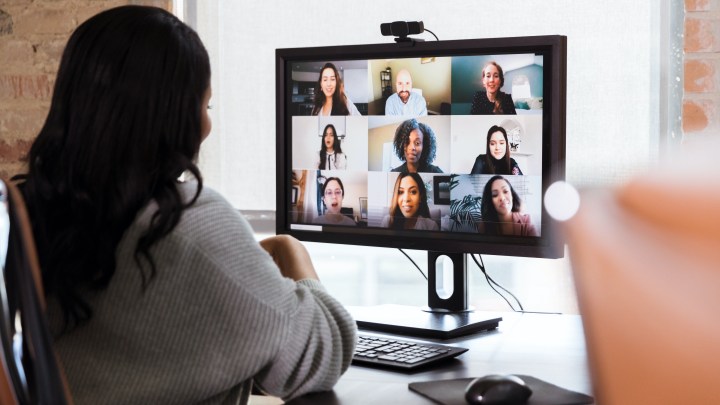
How workers who started jobs remotely are adapting a year on
How workers who started jobs remotely are adapting a year on

Millions of people have been working remotely for more than a year now, and for some of them, it’s the only experience of their jobs they’ve ever had. In May, we reported on the challenges and just general weirdness of starting a new job from home during the pandemic. After a year, some have thrived while others have moved on.
When Tristan Hall started a job as a software engineer in North Carolina at the beginning of the pandemic, video meetings were still kind of fresh. He would get dressed up for meetings in “work” clothes, even shoes.
But now, “it’s like, shorts and definitely no socks,” he said.
While he doesn’t exactly feel like the new guy anymore, he’s never been to an office or seen any of his co-workers beyond the little window of the video chat. Though, he said, that little window can reveal a lot: His co-workers have seen a lot more of his kids and home than they ever would have otherwise.
Still, he’s excited and a little nervous about the prospect of finally meeting folks in person as his company plans to reopen in the coming months.
“I have to learn how to become friends with people again,” Hall laughed. “Learn that whole high school clique thing.”
Because try as companies might, no amount of virtual happy hours, trivia or talent shows can replace face-to-face interactions, said Jill Chapman, senior performance consultant with human resource services firm Insperity.
She had been a fan of those goofy virtual events to engage new employees, but after a year of them she said the deficiencies of video communication have become clear and companies need to be ready to help employees fill in those gaps as offices reopen.
“It’s, get ready to be the new kid on the block again, right?” Chapman said. “I think the onus is going to be on our managers to really understand that all their new-old employees or old-new employees, however you want to call it, are going to need to be reoriented.”
Though some companies have just reoriented themselves, like Edmodo, an e-learning company that used to be based in the San Francisco area.
“We no longer have an office, we are not planning to go back to the office,” said Alicia Harmon O’Meara, chief operating officer at Edmodo.
In the early weeks of the pandemic, O’Meara struggled to just get new hires set up with a computer. Since then, the company has brought on 16 people and streamlined the process. With an automated onboarding program and a host of apps, they have transitioned to becoming a fully remote company for good.
However, the virtual lunches are still as awkward as ever. “Eating is just the weirdest,” O’Meara said. “It’s just the weirdest experience when you’re just staring at one person on the screen, or lots of people on the screen. I don’t know if we’ll ever get used to it.”
But it wasn’t just the awkward video calls Robert Down couldn’t get used to at the job he started last year as the pandemic began. He’d left a job as a nurse in Orlando, Florida, for a remote gig in data analysis for a hospital. A few months ago, he changed jobs again.
“In January I finally just said, ‘I gotta pause that,'” he said. “There’s a pressing need right now, so I left my stay-at-home, 9-to-5 desk job to go back to the bedside.”
Like many pandemic hires, Down had never met his co-workers at his previous job, though they did throw him a farewell dinner in person.
“They thought it was important to at least say, ‘We’re real. We’re not just people on the other side of a computer,'” he said. “I think, maybe it would have been a little more difficult to leave when you develop those relationships over the course of a year in person.”
Down’s now onboarding again as a travel nurse in South Florida.
There’s a lot happening in the world. Through it all, Marketplace is here for you.
You rely on Marketplace to break down the world’s events and tell you how it affects you in a fact-based, approachable way. We rely on your financial support to keep making that possible.
Your donation today powers the independent journalism that you rely on. For just $5/month, you can help sustain Marketplace so we can keep reporting on the things that matter to you.


















